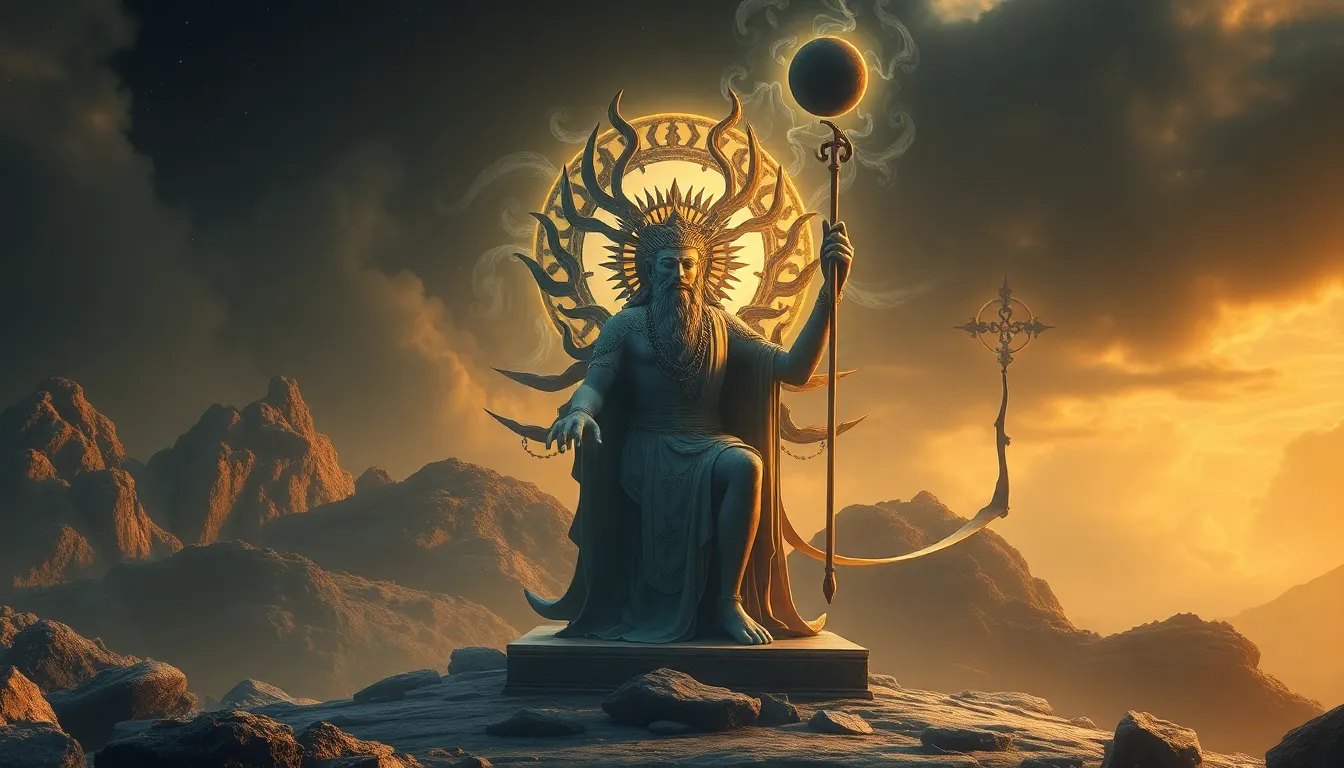Ancient Deities and Their Influence on Modern Spirituality
1. Introduction to Ancient Deities
Throughout history, ancient deities have played a pivotal role in shaping cultures and societies. These divine figures were often seen as personifications of natural forces, moral ideals, and the complexities of human life. In various ancient cultures, deities served not only as objects of worship but also as embodiments of societal values and norms.
Major civilizations such as the Egyptians, Greeks, Romans, and Hindus each had their pantheons, with numerous deities that held significant sway over the lives of their followers. These deities were often depicted in art and literature, reflecting their importance in the daily lives of ancient peoples.
2. The Role of Deities in Ancient Societies
Deities were central to the social and cultural frameworks of ancient societies. They influenced everything from governance to personal conduct. The worship of these gods often dictated the rituals and community activities that brought people together.
- Cultural Norms: Deities embodied ideals such as justice, love, and war, shaping the moral compass of their societies.
- Social Structures: The hierarchy of deities often mirrored societal hierarchies, with greater gods overseeing lesser ones, reflecting the social order.
- Rituals and Temples: Temples dedicated to deities served as centers of worship and community gatherings, playing a crucial role in social cohesion.
3. Key Ancient Deities and Their Attributes
Several ancient deities stand out due to their profound influence on mythology and culture. Understanding their characteristics and stories helps illustrate their importance in both ancient and modern contexts.
- Zeus: The king of the Greek gods, Zeus was associated with the sky and thunder, embodying authority and order.
- Isis: An Egyptian goddess of magic and motherhood, Isis represented the ideal of femininity and nurturing.
- Vishnu: In Hinduism, Vishnu is the preserver of the universe, embodying mercy and goodness.
- Thor: The Norse god of thunder, Thor symbolizes strength and protection, widely recognized in contemporary culture.
4. The Transition of Ancient Beliefs into Modern Spirituality
The evolution from polytheistic beliefs to monotheism and contemporary spiritual practices reflects a significant historical transition. As societies evolved, many ancient beliefs were reinterpreted or replaced, yet remnants of these beliefs persist.
In recent decades, there has been a resurgence of interest in ancient deities and practices. Many modern spiritual seekers look to ancient wisdom as a source of inspiration and guidance in their spiritual journeys.
5. Syncretism: Blending Ancient Deities with Modern Beliefs
Syncretism, the merging of different beliefs, has allowed ancient deities to find new expressions in modern spirituality. This blending showcases the adaptability of spiritual practices across cultures.
Some notable examples include:
- Vodou: This religion incorporates elements of African, indigenous, and Christian beliefs, integrating deities from various traditions.
- Santería: A Cuban religion that blends Yoruba beliefs with Catholicism, featuring saints that correspond to African deities.
6. The Psychological Impact of Ancient Deities on Modern Practitioners
The concept of archetypes, as explored in Jungian psychology, reveals how ancient deities resonate with individuals on a psychological level. These archetypes can serve as symbols of personal development and self-exploration.
Modern practitioners often find that connecting with these deities provides:
- A sense of identity and belonging.
- Guidance in personal challenges.
- An avenue for self-expression and creativity.
7. Modern Spiritual Movements Inspired by Ancient Deities
Neo-paganism, Wicca, and other modern spiritual movements are significantly influenced by ancient deities. These movements often seek to revive traditional practices and reinterpret them for contemporary followers.
For example:
- Neo-Paganism: This movement celebrates various ancient traditions, often incorporating rituals dedicated to ancient gods and nature.
- Wicca: A modern witchcraft practice that venerates a dual deity—God and Goddess—drawing upon ancient European pagan traditions.
8. The Influence of Ancient Deities in Popular Culture
Ancient deities have found a prominent place in popular culture, appearing in literature, film, and art. Their representations often shape contemporary spiritual views and inspire new generations.
- Literature: Many authors draw upon ancient mythology to create rich narratives, such as Rick Riordan’s “Percy Jackson” series.
- Film: Movies like “Clash of the Titans” and Marvel’s Thor have brought ancient gods to mainstream audiences, often reimagining their stories.
9. Challenges and Critiques of Reviving Ancient Deities
While the revival of ancient deities in modern spirituality offers many benefits, it also raises ethical considerations. Issues of cultural appropriation and authenticity are often at the forefront of discussions surrounding these practices.
Critiques often focus on:
- The potential oversimplification of complex belief systems.
- The risk of commodifying sacred traditions for modern consumption.
10. Conclusion: The Enduring Legacy of Ancient Deities
The influence of ancient deities on today’s spiritual landscape is profound and multifaceted. Understanding these ancient beliefs enhances modern spiritual growth, providing a rich tapestry of wisdom and practice.
As individuals continue to seek meaning and connection in their spiritual journeys, the legacy of ancient deities remains a vital source of inspiration and guidance, reminding us of the enduring power of the divine in human existence.




